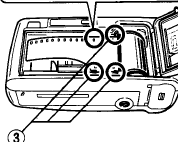and historical purposes, all rights reserved.
This page is copyright© by
This page may not be sold or distributed without
the expressed permission of the producer
I have no connection with any camera company.
This camera manual library is for reference
and historical
purposes, all rights reserved.
This page is copyright©
by
![]() .
M. Butkus, NJ.
.
M. Butkus, NJ.
This page may not be sold or distributed without
the expressed
permission of the producer
I have no connection with any camera company.
On-line camera manual library
If you find this manual
useful,
how about a donation of $3 to:
M. Butkus, 29 Lake Ave.,
High Bridge, NJ 08829-1701
and send your
e-mail address
so I can thank you.
Most other places would charge
you $7.50 for a electronic copy
or $18.00 for a hard to read Xerox copy.
If
you use Pay Pal, use the link below.
Use the above address for a check, M.O.
or cash.
Back to main camera manual page
Ricoh LX-22
PDF
Ricoh LX-22 Bedienungsanleitung
Ricoh LX-22 Mode D'emploi
Ricoh
LX-22 Manual de Instrucciones
CLICK HERE FOR A Ricoh LX-22 PDF
VERSION OF HTML MANUAL
Ricoh LX-22 HTML


